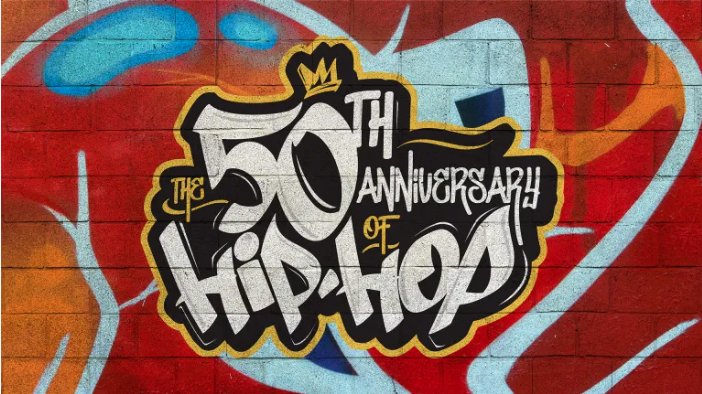The Evolution of Hip Hop as it Reaches its 50th Anniversary

They say fashion tells a story, but for Dina Yassin,…
The evolution of hip hop over the past 50 years has been remarkable. From its beginnings as an underground culture in the Bronx, New York, it has grown to become one of the most popular music genres in the world. As hip hop reaches its 50th anniversary, it is a great time to reflect on how far it has come and the impact it has had on music, culture, and even politics. From its early days as a form of expression for marginalized communities to its current status as a global phenomenon, hip hop has grown and changed over the years. This paper will explore the history of hip hop, its influences, and its impact on society. It will also examine the current state of hip hop and how it has evolved over the years to remain a relevant and important part of the music industry.
How Hip Hop has Changed in the Last 50 Years and its Impact on Pop Culture
Hip hop has evolved greatly over the past 50 years, and its influence on pop culture is undeniable. In the 1970s, hip hop first emerged from the South Bronx and quickly gained a following in the African-American community. The genre was heavily influenced by funk, soul, and disco music, as well as other genres of the time. At its core, hip hop was about self-expression and creativity.
In the 1980s, hip hop began to spread beyond the African-American community, and by the end of the decade, it had become a mainstream phenomenon. The rise of hip hop in the 1980s was closely tied to the development of rap music. Popular rap artists of the era included Run-DMC, the Beastie Boys, and Public Enemy. These artists brought the sound of hip hop to a wider audience.
The 1990s saw the emergence of gangsta rap, a style characterized by aggressive lyrics and dark themes. While this style of hip hop was controversial, it also made a lasting impact on the genre. Popular artists of this era included Tupac Shakur, Notorious B.I.G., and Dr. Dre.
The 2000s brought a shift in hip hop towards more commercialized sounds. This was largely due to the rise of the internet, which gave artists more access to a global audience. This period also saw the emergence of newer styles such as crunk and trap. Popular artists of this era included Jay-Z, 50 Cent, and Kanye West.
In the last decade, hip hop has become increasingly diverse, with artists experimenting with different genres and sounds. Hip hop has also become a major influence on other genres of music, such as pop and EDM. Popular artists of this era include Drake, Kendrick Lamar, and Cardi B.
Hip hop has come a long way since it first emerged in the South Bronx, and its influence on pop culture can be seen everywhere. From the fashion to the music, hip hop has had a profound impact on the culture of today’s society. As it continues to evolve, hip hop will no doubt continue to be an influential force in pop culture for years to come.
The Evolution of Hip Hop: A Journey of Social and Cultural Change
The evolution of hip hop is a long and twisting journey that is reflective of the social and cultural changes the world has undergone over the years. From its origins in the South Bronx in the 1970s, to its present-day global reach, hip hop has evolved in many ways.
What began as a form of self-expression for members of the African American and Hispanic communities, hip hop has become a culture that is celebrated, and respected, by people of all backgrounds.
The early days of hip hop were characterized by its raw energy and creative spirit. As the culture grew, its influence spread and it began to shape the music, dance, art and fashion of the time. Rappers, DJs and breakdancers used hip hop to explore social and political issues in their lyrics and performances.
The 1980s saw the emergence of the hip hop subgenres such as electro, funk, and gangster rap, while the 1990s introduced the world to the golden age of hip hop. This period was marked by an increased focus on lyricism and production, which brought about a new era of rap music.
As the 21st century dawned, hip hop music had become a global phenomenon. Its influence had reached far beyond its original roots, permeating popular culture around the world. Hip hop had become an integral part of many youth cultures in countries as diverse as the United States, the United Kingdom, and Japan.
Today, hip hop continues to be a powerful force in music, art, and culture. Its influence can be seen in the works of artists across genres, from rap to rock to pop. As it continues to evolve, hip hop stands as a testament to the power of music to inspire and unite people from all walks of life.
The 50th Anniversary of Hip Hop: Celebrating Its Rise to International Recognition
It is hard to imagine life today without the influence of hip hop. This genre of music has come a long way since its emergence in the Bronx, New York in the late 1970s. Now, as the genre celebrates its 50th anniversary of international recognition, we celebrate the artistry, creativity, and impact of hip hop on popular culture.
The roots of hip hop can be traced back to Jamaican-born DJ Kool Herc’s block parties in the Bronx in the 1970s. It was here that he began to experiment with mixing two records together, a process that would become known as cutting and scratching. This technique helped to create the foundation for hip hop, which soon spread throughout the city, becoming so popular that it eventually spread to other cities around the world.
Over the years, hip hop has become a global phenomenon, with a variety of genres and sub-genres that have emerged. From rap and grime to trap and drill, hip hop has become an incredibly diverse art form. Artists such as Tupac, Nas, Jay-Z, and Kanye West have become international superstars, while others such as Kendrick Lamar, Nicki Minaj, and Cardi B continue to shape the genre.
The influence of hip hop can be seen everywhere. From fashion and art to television and films, hip hop has become a major part of popular culture. It has also become a powerful tool for social activism, with artists using their music to bring attention to issues such as social injustice and inequality.
As hip hop enters its 50th year of global recognition, we celebrate its growth and impact on popular culture. We celebrate the creativity and artistry of the genre, as well as its ability to bring people together from all walks of life. Hip hop is here to stay, and we look forward to seeing what the next 50 years have in store.
As Hip Hop celebrates its 50th anniversary, it is clear that the art form has come a long way. From its humble beginnings in the Bronx, Hip Hop has spread across the globe, influencing and inspiring countless generations. While the genre has changed and evolved over the years, its impact has remained the same: to create a powerful, unifying voice for people of all ages, cultures, and backgrounds. Hip Hop has become a worldwide phenomenon, and its legacy will continue to shape the music and culture of generations to come.
What's Your Reaction?
They say fashion tells a story, but for Dina Yassin, it’s more than just storytelling—it’s an art, a science, and a little bit of magic. As the Co-Founder, Chief Storyteller, and Editor-in-Chief of GAZETTA—among many other titles—she’s the woman behind the words, the visionary shaping narratives, and the creative force redefining luxury fashion journalism in the digital age. With over two decades of experience in luxury brand consulting, creative direction, and trend forecasting, Dina has worked with some of the most coveted names in the industry—think Van Cleef & Arpels, Kenzo, Bvlgari, Hermès, and Chloe—all while keeping her finger firmly on the pulse of what’s next. Her work has graced the pages of Vogue Arabia, Harper’s Bazaar, Condé Nast Traveler, Mojeh Magazine, Vanity Fair, Marie Claire, 7 Corriere, and The Rake—among many other top-tier titles—solidifying her reputation as a fashion and luxury thought leader. But here’s the twist—Dina isn’t just reporting on the future; she’s creating it. Under her leadership, GAZETTA introduced EVVIE 7, an AI-driven journalist pushing the boundaries of editorial innovation. Because in a world where algorithms influence aesthetics as much as designers, Dina ensures GAZETTA stays one step ahead, seamlessly blending technology, culture, and high fashion into a platform that speaks to the modern, forward-thinking luxury consumer. Beyond her editorial expertise, Dina is a renowned luxury brand consultant, trend strategist, and creative powerhouse who thrives at the intersection of fashion, culture, and digital storytelling. Whether she’s consulting on luxury branding, forecasting emerging trends, directing high-profile fashion campaigns, or curating immersive experiences, she’s always asking the big questions—What’s next? Who’s shaping it? And most importantly, how do we make it unforgettable? One thing is certain: Dina Yassin is always at the forefront of what’s next.



